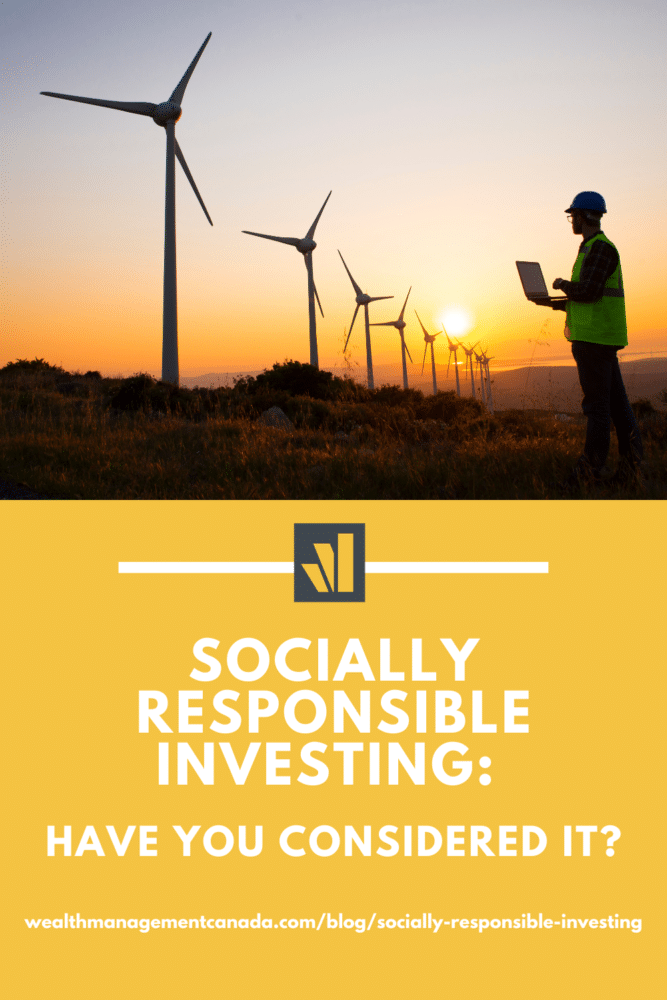At first thought, socially responsible investing brings to mind one of two things:
- Exclusion through negative screening, such as avoiding tobacco, adult entertainment, etc.
- Targeting companies that focus on having a social or environmental impact rather than profits.
These two notions both portray socially responsible investing (“SRI”) as a niche investment. But generally not considered as part of a traditional portfolio.
The investment landscape, however, has changed considerably in a very short amount of time. More and more investors are concerned with the social implications of their investments. Evolving preferences and opportunities mean that it is time to revisit the viability of incorporating SRI mandates within your portfolio.
Related Reading: Triasima: Behind the Scenes

Table of contents
Current Trends in Socially Responsible Investing
The institutional investment sector has often been one step ahead of private investors in terms of portfolio allocation and investment trends. This has resulted in some industry professionals referring to institutional investors as the “smart money.” Given this, you may be surprised to find out that this “smart money” has been trending towards SRI investing for some time. Recently at an accelerating pace.
According to the US SIF Foundation, which surveys investors every two years, “Institutional assets invested under environmental, social and governance (ESG) principles in the US totaled $4.73 trillion at the start of 2016, a 16.9% increase from 2014.”[1] In particular, “institutional investors such as BlackRock Inc., Vanguard Group Inc., and State Street Global Advisors Inc. have driven sustainable investing efforts in the U.S. for years now by using their dominant ownership positions to sway companies’ decisions on topics like climate change, gender equality and gun control.”[2] In contrast to this, within the private investor space, “more than half of advisers do not plan on using ESG products. When asked why, they say they believe they do not perform as well as other investments.”[3]
Before discussing returns, we can observe trends at a deeper level – those among individual investors.
We know that the next generation of investors is thinking differently in how they invest their money. According to Morgan Stanley, millennial investors are twice as likely as the overall investor population to invest in companies targeting social or environmental goals.[4] It is reasonable to assume that this is just one of the reasons which have led to sustainable, responsible, and impact investing [rising] 33% between 2014-2016 to $8.72 trillion.[5]
The growth in this space can only be expected to accelerate. According to a study conducted by the SpectremGroup, 49% of millennials with a net worth of more than $1 million cite social responsibility as a factor in their choice of investment.[6]
Related Reading: ESG Investing: A Complete Guide
Benefits of SRI in your portfolio
Today there’s an abundance of investment options available to investors. And while investors understand the importance of creating a well-diversified portfolio, only recently are companies focused on positive social or environmental outcomes being considered for their diversification benefits.
A study within the Journal of Energy Technologies and Policy has shown that a portfolio with the addition of an SRI component “obtained [a] higher risk-adjusted return with [a] lower value-at-risk.”[7] Strictly on a return basis, S&P Global Market Intelligence has found that “environmental, social, and governance-focused investment products have now begun recording returns on par with or better than funds built purely for risk-weighted performance, a trend that runs counter to the notion that taking ESG into account means leaving money on the table.”[8]
Related Reading: Understanding the Relationship Between Our Economy and the Stock Market
Ask your wealth manager about implementing SRI in your portfolio
With a significant transfer of wealth from the baby boomer generation to the millennial generation just around the corner, it becomes increasingly important for wealth managers to consider the mindset of the generations set to inherit these assets. And while some analysts and portfolio managers are playing the catch-up game, others (the good ones) have been implementing ESG factors as part of their research process long before investors started demanding it. We encourage you to ask your wealth manager about their approach to socially responsible investing.
Still considering whether socially responsible investing is a good fit for your portfolio? It’s worth remembering the last, and perhaps most important, reason: you are helping to build a better world for yourself, your children, and those around you.
Want to learn more about socially responsible investing? Send us a message through our contact form.
Read More: Millennials, Money and the Investment Industry